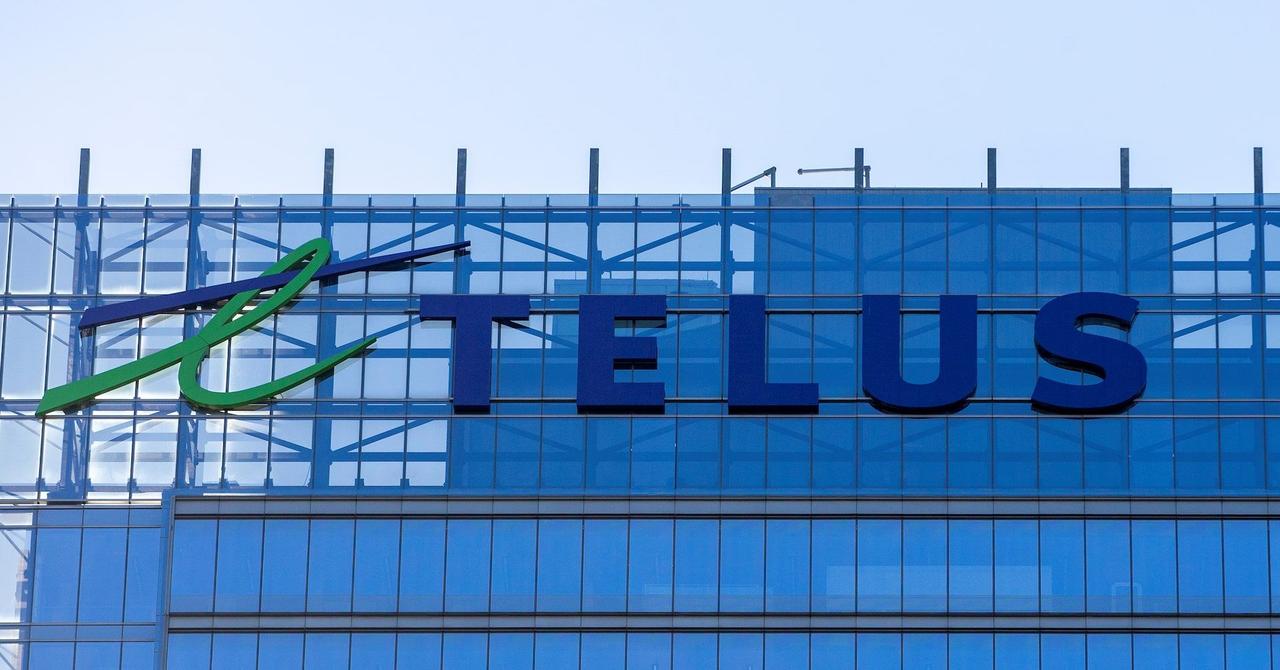BCE Unveils Canada's Largest AI Compute Project: A Network of Six Data Centers
3 Sources
3 Sources
[1]
Canadian Telecom BCE to Build Large Network of AI Data Centers
BCE Inc., Canada's largest telecom company by revenue, will set up a network of artificial intelligence data centers across the country, mirroring the aggressive AI infrastructure build-out happening in the US and abroad. Bell Canada plans to invest hundreds of millions of dollars to build data centers in six Canadian cities, said Chief Executive Officer Mirko Bibic in an interview. The first site, in Kamloops, British Columbia, is expected to come online in June, with US-based AI chip startup Groq as an anchor tenant. Other facilities are planned in the province, as well as in Manitoba and Quebec in the coming years, Bell said.
[2]
Bell announces plans to open six AI data centres in B.C. as part of Bell AI Fabric
Bell Canada has announced it will open six artificial intelligence data centres in B.C. as part of a plan to create the largest AI compute project in Canada. The Montreal-based telecom company, which has in recent years touted its intent to become more tech-focused, said the facilities will provide around 500 megawatts of hydroelectric-powered AI compute capacity. AI compute refers to the technology that enables artificial intelligence systems to perform tasks, such as processing data and training machine-learning models. The project, called Bell AI Fabric, will help support Canadian businesses and governments' AI needs, ranging from strategy and applications development to infrastructure deployment, the company said. Bell AI Fabric's first seven-megawatt data centre is slated to open next month in Kamloops, in partnership with American AI inference provider Groq. The company said Groq's technology is designed to accelerate AI inference tasks, particularly for large language models -- algorithms that use massive data sets to recognize, translate, predict or generate text and other content. "Groq's advanced LPU technology, combined with Bell's extensive fibre infrastructure, is setting a new standard in AI inference," Groq founder and CEO Jonathan Ross said in a press release. "We're excited to bring these capabilities to Canada, significantly enhancing performance and affordability for AI-driven applications." A second facility is planned to open in Merritt, B.C., by the end of this year. Bell said an additional 26-megawatt data centre, being built in partnership with Thompson Rivers University, will open by the end of 2026, followed by another in 2027. Two more AI data centres are in advanced planning stages, which will be designed for high-density AI workloads, with a total capacity of more than 400 megawatts. The company said future facilities planned across the country will take advantage of Bell's real estate assets to add further capacity. "Bell's AI Fabric will ensure that Canadian businesses, researchers, and public institutions can access high-performance, sovereign and environmentally responsible AI computing services," Bell president and CEO Mirko Bibic said in a press release. "Through this investment, Bell is immediately bolstering Canada's sovereign AI compute capacity, while laying the groundwork to continue growing our AI economy." Earlier this month, Bell launched a new tech services brand called Ateko, which unifies recently acquired tech companies FX Innovation, HGC Technologies and CloudKettle under a single umbrella. The company said Ateko will help businesses streamline operations, cut costs and boost productivity using AI, and serves as a cornerstone of Bell's ambition to build a $1-billion tech services business. This report by The Canadian Press was first published May 28, 2025.
[3]
BCE unveils Canada's largest AI compute project with six-data center network By Investing.com
Investing.com -- Bell Canada, or BCE Inc (TSX:BCE), has unveiled a multibillion-dollar initiative to create the nation's largest artificial intelligence computing network, establishing a strategic foothold in an increasingly competitive global AI landscape. The new project, dubbed Bell AI Fabric, will provide up to 500 megawatts of capacity across six data centers, all powered by hydroelectric energy in British Columbia. The first data center in the network will be operational in June 2025 in Kamloops, marking the beginning of a nationwide rollout aimed at supporting Canadian companies, academic institutions, and public bodies. In its announcement, Bell positioned the initiative as a long-term commitment to enabling secure, sovereign, and sustainable AI development. "Bell's AI Fabric will ensure that Canadian businesses, researchers, and public institutions can access high-performance, sovereign and environmentally responsible AI computing services," said Mirko Bibic, President and CEO of BCE and Bell Canada. "This is transformational for our customers, for Canada and for Bell." Partnerships are central to the infrastructure buildout, with U.S.-based chipmaker Groq selected as Bell's technology partner. Groq's Language Processing Units (LPUs) are expected to provide faster, more cost-effective inference performance for applications involving large language models, the engine behind generative AI. "Groq's advanced LPU technology, combined with Bell's extensive fibre infrastructure, is setting a new standard in AI inference," said Jonathan Ross, CEO and Founder of Groq. "We're excited to bring these capabilities to Canada, significantly enhancing performance and affordability for AI-driven applications." The initiative also includes a major academic collaboration with Thompson Rivers University, where a 26-megawatt facility will be integrated with the campus district energy system to recycle waste heat. The university says the partnership will give students and faculty access to world-class computing capabilities and real-world AI training environments. "Thompson Rivers University is proud to partner in this groundbreaking initiative, positioning Kamloops and British Columbia at the forefront of sustainable AI innovation," said Shannon Wagner, Interim Provost and VP Academic at TRU. Future data centers are in advanced planning and are expected to bring more than 400 megawatts of capacity, further solidifying Canada's position in the high-density AI compute space.
Share
Share
Copy Link
BCE Inc., Canada's largest telecom company, announces plans to build a network of AI data centers across the country, starting with six facilities in British Columbia, to create the largest AI compute project in Canada.
BCE's Ambitious AI Infrastructure Initiative
BCE Inc., Canada's largest telecom company by revenue, has unveiled plans to establish the country's most extensive artificial intelligence (AI) computing network. The project, named Bell AI Fabric, aims to create a network of six data centers across Canada, with a primary focus on British Columbia
1
.
Source: Bloomberg
Strategic Locations and Capacity
The first data center, set to open in June 2025 in Kamloops, British Columbia, marks the beginning of this nationwide rollout. BCE plans to invest hundreds of millions of dollars in building these facilities, which will collectively provide up to 500 megawatts of AI compute capacity
2
. Additional sites are planned in Manitoba and Quebec in the coming years.Partnerships and Technology
BCE has formed strategic partnerships to enhance the project's capabilities:
-
Groq: The US-based AI chip startup will serve as an anchor tenant and technology partner. Groq's Language Processing Units (LPUs) are expected to accelerate AI inference tasks, particularly for large language models
3
. -
Thompson Rivers University: A 26-megawatt facility will be integrated with the university's campus district energy system, recycling waste heat and providing students and faculty with access to world-class computing capabilities
2
.
Sustainability and Sovereignty
Bell AI Fabric emphasizes environmental responsibility and national interests:
- All six data centers will be powered by hydroelectric energy, aligning with sustainability goals
3
. - The project aims to bolster Canada's sovereign AI compute capacity, ensuring that Canadian businesses, researchers, and public institutions have access to high-performance, domestically controlled AI computing services
2
.
Related Stories
Future Expansion and Impact
BCE's vision extends beyond the initial six data centers:
- Two additional high-density AI workload facilities are in advanced planning stages, with a total capacity exceeding 400 megawatts
2
. - The company plans to leverage its real estate assets for further expansion across the country
2
.
BCE's Tech Services Ambitions
This AI infrastructure initiative is part of BCE's broader strategy to become more tech-focused:
- Earlier in May 2025, BCE launched Ateko, a new tech services brand unifying recently acquired companies FX Innovation, HGC Technologies, and CloudKettle
2
. - BCE aims to build a $1-billion tech services business, with Ateko serving as a cornerstone in helping businesses streamline operations and boost productivity using AI
2
.
As BCE positions itself at the forefront of Canada's AI infrastructure development, the Bell AI Fabric project represents a significant step in the country's efforts to compete in the global AI landscape while prioritizing sovereignty and sustainability in technological advancement.
References
Summarized by
Navi
Related Stories
Cohere and CoreWeave to Build Multibillion-Dollar AI Data Center in Canada with Government Support
07 Dec 2024•Business and Economy

Canada Considers $15 Billion Incentive for Green AI Data Centers
13 Dec 2024•Business and Economy

Telus Announces $70 Billion Investment Plan, Including AI Data Centers and Network Expansion
28 May 2025•Business and Economy

Recent Highlights
1
Google Gemini 3.1 Pro doubles reasoning score, beats rivals in key AI benchmarks
Technology

2
Pentagon Summons Anthropic CEO as $200M Contract Faces Supply Chain Risk Over AI Restrictions
Policy and Regulation

3
Canada Summons OpenAI Executives After ChatGPT User Became Mass Shooting Suspect
Policy and Regulation





